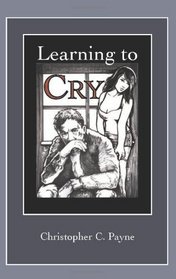***NOTE: May contain spoilers***
I found this story to be very engaging. I enjoyed how the narrator, the Father, told his story, "warts & all", even when it made him look less than stellar. I thought his raw honesty at how he felt about his teenage daughter to be the absolute best part of this book.
There were a few things I did not like about this book however. First, the editing was atrocious. Wrong words used (forward instead of forehead and flair instead of flare, for example), names changed spelling during the story (one boy was Donavon or Donovan, depending on the sentence). I found these issues distracted me from the story because I had to sometimes stop and decipher what the author really meant. I also did not like that the passages from the Father's point of view were written in the first person, while the daughter's passages were written in the third person. I found it disconcerting to switch back and forth.
As for the story itself, it is interspersed with the Father's reminisces of his own teenage years. I'm not exactly sure why they were there--to compare the Father's teenage years to his daughter's perhaps?--but I felt that not only did they not add to the story, I found them to distract from the story. Another part of the story I had trouble with was the teenage daughter's supposed mental problems. Specifically, maybe halfway to 2/3 through the story the teenage daughter starts hearing voices in her head. These voices have names and she talks back with them. Then at the very end of the story, these voices miraculously disappear after an event that in real life would NEVER cure mental illness. I feel the story would have been immensely better without the addition of these "voices".
I found this story to be very engaging. I enjoyed how the narrator, the Father, told his story, "warts & all", even when it made him look less than stellar. I thought his raw honesty at how he felt about his teenage daughter to be the absolute best part of this book.
There were a few things I did not like about this book however. First, the editing was atrocious. Wrong words used (forward instead of forehead and flair instead of flare, for example), names changed spelling during the story (one boy was Donavon or Donovan, depending on the sentence). I found these issues distracted me from the story because I had to sometimes stop and decipher what the author really meant. I also did not like that the passages from the Father's point of view were written in the first person, while the daughter's passages were written in the third person. I found it disconcerting to switch back and forth.
As for the story itself, it is interspersed with the Father's reminisces of his own teenage years. I'm not exactly sure why they were there--to compare the Father's teenage years to his daughter's perhaps?--but I felt that not only did they not add to the story, I found them to distract from the story. Another part of the story I had trouble with was the teenage daughter's supposed mental problems. Specifically, maybe halfway to 2/3 through the story the teenage daughter starts hearing voices in her head. These voices have names and she talks back with them. Then at the very end of the story, these voices miraculously disappear after an event that in real life would NEVER cure mental illness. I feel the story would have been immensely better without the addition of these "voices".





